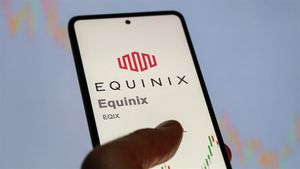As the global automotive industry races towards a future dominated by autonomous driving and intelligent in-car AI, the development of a robust and localized semiconductor ecosystem has become paramount. South Korea, a powerhouse in both automotive manufacturing and semiconductor technology, is making significant strides in this critical area, with Hyundai Mobis (KRX: 012330) emerging as a pivotal leader. The company's strategic initiatives, substantial investments, and collaborative efforts are not only bolstering South Korea's self-reliance in automotive chips but also laying the groundwork for the next generation of smart vehicles powered by advanced AI.
The drive for dedicated automotive-grade chips is more crucial than ever. Modern electric vehicles (EVs) can house around 1,000 semiconductors, while fully autonomous cars are projected to require over 2,000. These aren't just any chips; they demand stringent reliability, safety, and performance standards that consumer electronics chips often cannot meet. Hyundai Mobis's aggressive push to design and manufacture these specialized components domestically represents a significant leap towards securing the future of AI-driven mobility and reducing the current 95-97% reliance on foreign suppliers for South Korea's automotive sector.
Forging a Domestic Semiconductor Powerhouse: The Technical Blueprint
Huyndai Mobis's strategy is multifaceted, anchored by the recently launched Auto Semicon Korea (ASK) forum in September 2025. This pioneering private-sector-led alliance unites 23 prominent companies and research institutions, including semiconductor giants like Samsung Electronics (KRX: 005930), LX Semicon (KOSDAQ: 108320), SK keyfoundry, and DB HiTek (KRX: 000990), alongside international partners such as GlobalFoundries (NASDAQ: GFS). The ASK forum's core mission is to construct a comprehensive domestic supply chain for automotive-grade chips, aiming to localize core production and accelerate South Korea's technological sovereignty in this vital domain. Hyundai Mobis plans to expand this forum annually, inviting startups and technology providers to further enrich the ecosystem.
Technically, Hyundai Mobis is committed to independently designing and manufacturing over 10 types of crucial automotive chips, including Electronic Control Units (ECUs) and Microcontroller Units (MCUs), with mass production slated to commence by 2026. This ambitious timeline reflects the urgency of establishing domestic capabilities. The company is already mass-producing 16 types of in-house designed semiconductors—covering power, data processing, communication, and sensor chips—through external foundries, with an annual output reaching 20 million units. Furthermore, Hyundai Mobis has secured ISO 26262 certification for its semiconductor R&D processes, a testament to its rigorous safety and quality management, and a crucial enabler for partners transitioning into the automotive sector.
This approach differs significantly from previous strategies that heavily relied on a few global semiconductor giants. By fostering a collaborative domestic ecosystem, Hyundai Mobis aims to provide a "technical safety net" for companies, particularly those from consumer electronics, to enter the high-stakes automotive market. The focus on defining controller-specific specifications and supporting real-vehicle-based validation is projected to drastically shorten development cycles for automotive semiconductors, potentially cutting R&D timelines by up to two years for integrated power semiconductors and other core components. This localized, integrated development is critical for the rapid iteration and deployment required by advanced autonomous driving and in-car AI systems.
Reshaping the AI and Tech Landscape: Corporate Implications
Hyundai Mobis's leadership in this endeavor carries profound implications for AI companies, tech giants, and startups alike. Domestically, companies like Samsung Electronics, LX Semicon, SK keyfoundry, and DB HiTek stand to benefit immensely from guaranteed demand and collaborative development opportunities within the ASK forum. These partnerships could catalyze their expansion into the high-growth automotive sector, leveraging their existing semiconductor expertise. Internationally, Hyundai Mobis's November 2024 investment of $15 million in US-based fabless semiconductor company Elevation Microsystems highlights a strategic focus on high-voltage power management solutions for EVs and autonomous driving, including advanced power semiconductors like silicon carbide (SiC) and gallium nitride (GaN) FETs. This signals a selective engagement with global innovators to acquire niche, high-performance technologies.
The competitive landscape is poised for disruption. By increasing the domestic semiconductor adoption rate from the current 5% to 10% by 2030, Hyundai Mobis and Hyundai Motor Group are directly challenging the market dominance of established foreign automotive chip suppliers. This strategic shift enhances South Korea's global competitiveness in automotive technology and reduces supply chain vulnerabilities, a lesson painfully learned during recent global chip shortages. Hyundai Mobis, as a Tier 1 supplier and now a significant chip designer, is strategically positioning itself as a central figure in the automotive value chain, capable of managing the entire supply chain from chip design to vehicle integration.
This integrated approach offers a distinct strategic advantage. By having direct control over semiconductor design and development, Hyundai Mobis can tailor chips precisely to the needs of its autonomous driving and in-car AI systems, optimizing performance, power efficiency, and security. This vertical integration reduces reliance on external roadmaps and allows for faster innovation cycles, potentially giving Hyundai Motor Group a significant edge in bringing advanced AI-powered vehicles to market.
Wider Significance: A Pillar of AI-Driven Mobility
Huyndai Mobis's initiatives fit squarely into the broader AI landscape and the accelerating trend towards software-defined vehicles (SDVs). The increasing sophistication of AI algorithms for perception, decision-making, and control in autonomous systems demands purpose-built hardware capable of high-speed, low-latency processing. Dedicated automotive semiconductors are the bedrock upon which these advanced AI capabilities are built, enabling everything from real-time object recognition to predictive analytics for vehicle behavior. The company is actively developing a standardized platform for software-based control across various vehicle types, targeting commercialization after 2028, further underscoring its commitment to the SDV paradigm.
The impacts of this development are far-reaching. Beyond economic growth and job creation within South Korea, it represents a crucial step towards technological sovereignty in a sector vital for national security and economic prosperity. Supply chain resilience, a major concern in recent years, is significantly enhanced by localizing such critical components. This move also empowers Korean startups and research institutions by providing a clear pathway to market and a collaborative environment for innovation.
While the benefits are substantial, potential concerns include the immense capital investment required, the challenge of attracting and retaining top-tier semiconductor talent, and the intense global competition from established chipmakers. However, this strategic pivot is comparable to previous national efforts in critical technologies, recognizing that control over foundational hardware is essential for leading the next wave of technological innovation. It signifies a mature understanding that true leadership in AI-driven mobility requires mastery of the underlying silicon.
The Road Ahead: Future Developments and Expert Predictions
Looking ahead, the near-term will see Hyundai Mobis pushing towards its 2026 target for mass production of domestically developed automotive semiconductors. The ASK forum is expected to expand, fostering more partnerships and bringing new companies into the fold, thereby diversifying the ecosystem. The ongoing development of 11 next-generation chips, including battery management systems and communication chips, over a three-year timeline, will be critical for future EV and autonomous vehicle platforms.
In the long term, the focus will shift towards the full realization of software-defined vehicles, with Hyundai Mobis targeting commercialization after 2028. This will involve the development of highly integrated System-on-Chips (SoCs) that can efficiently run complex AI models for advanced autonomous driving features, enhanced in-car AI experiences, and seamless vehicle-to-everything (V2X) communication. The investment in Elevation Microsystems, specifically for SiC and GaN FETs, also points to a future where power efficiency and performance in EVs are significantly boosted by advanced materials science in semiconductors.
Experts predict that this localized, collaborative approach will not only increase South Korea's domestic adoption rate of automotive semiconductors but also position the country as a global leader in specialized automotive chip design and manufacturing. The primary challenges will involve scaling production efficiently while maintaining the rigorous quality and safety standards demanded by the automotive industry, and continuously innovating to stay ahead of rapidly evolving AI and autonomous driving technologies.
A New Horizon for AI in Automotive: Comprehensive Wrap-Up
Huyndai Mobis's strategic leadership in cultivating South Korea's automotive semiconductor ecosystem marks a pivotal moment in the convergence of AI, automotive technology, and semiconductor manufacturing. The establishment of the ASK forum, coupled with significant investments and a clear roadmap for domestic chip production, underscores the critical role of specialized silicon in enabling the next generation of AI-powered vehicles. This initiative is not merely about manufacturing chips; it's about building a foundation for technological self-sufficiency, fostering innovation, and securing a competitive edge in the global race for autonomous and intelligent mobility.
The significance of this development in AI history cannot be overstated. By taking control of the hardware layer, South Korea is ensuring that its AI advancements in automotive are built on a robust, secure, and optimized platform. This move will undoubtedly accelerate the development and deployment of more sophisticated AI algorithms for autonomous driving, advanced driver-assistance systems (ADAS), and personalized in-car experiences.
In the coming weeks and months, industry watchers should closely monitor the progress of the ASK forum, the first prototypes and production milestones of domestically developed chips in 2026, and any new partnerships or investment announcements from Hyundai Mobis. This bold strategy has the potential to transform South Korea into a global hub for automotive AI and semiconductor innovation, profoundly impacting the future of transportation and the broader AI landscape.
This content is intended for informational purposes only and represents analysis of current AI developments.
TokenRing AI delivers enterprise-grade solutions for multi-agent AI workflow orchestration, AI-powered development tools, and seamless remote collaboration platforms.
For more information, visit https://www.tokenring.ai/.






